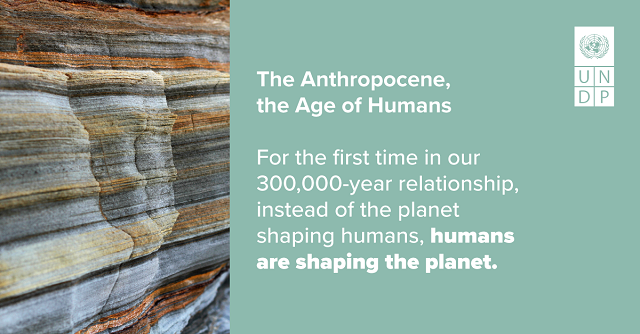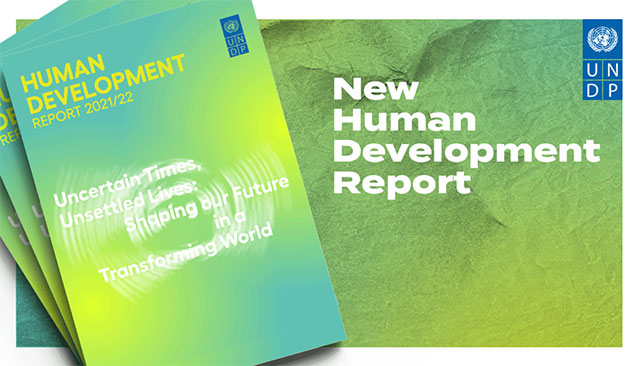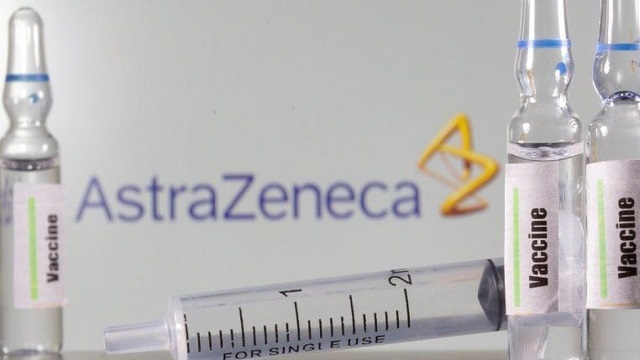Yerevan, 15 December 2020 – The COVID-19 has exposed the deep flaws in our societies – taking root wherever it has landed and exacerbating inequalities everywhere – but, unless we relax our grip on nature, it will not be the last crisis we face, argues the 30th anniversary edition of the Human Development Report, The Next Frontier: Human Development and the Anthropocene, which includes a new experimental index on human progress that takes into account countries’ carbon dioxide emissions and material footprint.
As people and planet enter an entirely new geological epoch – the Anthropocene, or the Age of Humans – it is time to for all countries, rich and poor, to redesign their paths for human progress, by fully accounting for the dangerous pressures we put on the planet, and dismantle the gross imbalances of power and opportunity that prevent change.
To illustrate the point, the Report introduces an experimental new lens to its annual Human Development Index (HDI). By adjusting the HDI, which measures a nation’s health, education, and standards of living, to include two more elements: a country’s carbon dioxide emissions and its material consumption, the index shows how the global development landscape would change if both the wellbeing of people and also the planet were central to defining humanity’s progress. As a result of the Planetary-Pressures Adjusted HDI (PHDI), a new global picture emerges, which shows that yet no country in the world has achieved the magic combination of high human development and low planetary pressure.
“With positive news coming out on COVID-19 vaccines, the world will soon start to look at moving past the pandemic but there must be no return to the ‘old normal’. Business as usual will simply not work. We have a once-in-a-generation opportunity for humanity to choose to change. Human development, with its focus on expanding choices and freedom, provides a way forward for people and the planet. Our goal is that people and the planet prosper together, all countries achieve high human development that doesn’t ‘cost the Earth,” said Dmitry Mariyasin, UNDP Resident Representative in Armenia.
Read also
The report identifies three building blocks to create real, lasting change: working with – not against – nature, improving incentives and changing social norms.
The 2020 HDR presents the 2019 HDI for 189 countries and UN-recognized territories. The HDI is a summary measure for assessing long-term progress in three basic dimensions of human development: a long and healthy life measured by life expectancy, access to knowledge and a decent standard of living. It is misleading to compare values and rankings with those of previously published reports, because of revisions and updates of the underlying data and adjustments to goalposts.
Armenia’s HDI value for 2019 is 0.776, which put the country in the high human development category, positioning it at 81 out of 189 countries and territories. Between 1990 and 2019, Armenia’s life expectancy at birth increased by 7.2 years, mean years of schooling increased by 1.2 years and expected years of schooling increased by 2.2 years. Armenia’s GNI per capita increased by about 167.6 percent between 1990 and 2019.
Armenia’s 2019 HDI of 0.776 is above the average of 0.753 for countries in the high human development group and below the average of 0.791 for countries in Europe and Central Asia. From Europe and Central Asia, Armenia is compared with Azerbaijan and Georgia, which have HDIs ranked 88 and 61, respectively. Turkey and Iran are ranked 54th and 70th, while the Russian Federation is ranked 52nd.
In 2010, the Inequality-adjusted Human Development Index (IHDI) was introduced, which is the HDI ‘discounted’ for inequalities. Armenia’s IHDI for 2019 is 0.699, a loss of 9.9 percent due to inequality in the distribution of the HDI dimension indices. Azerbaijan and Georgia show losses due to inequality of 9.5 percent and 11.8 percent, respectively. The average loss due to inequality for high HDI countries is 17.9 percent and for Europe and Central Asia it is 11.9 percent.
In terms of gender-based inequalities in reproductive health, empowerment, and economic activity, Armenia’s Gender Inequality Index (GII) value is 0.245, ranking it 54 out of 162 countries in the 2019 index. In Armenia, 23.5 percent of parliamentary seats are held by women, and 97.3 percent of adult women have reached at least a secondary level of education compared to 97.2 percent of their male counterparts. For every 100,000 live births, 26.0 women die from pregnancy related causes; and the adolescent birth rate is 21.5 births per 1,000 women of ages 15-19. Female participation in the labour market is 47.1 percent compared to 65.9 for men. In comparison, Azerbaijan and Georgia are ranked at 73 and 76, respectively, on this index.
The frontrunners in the 2019 global HDI rankings are Norway, Ireland, Switzerland, Hong Kong and Iceland. At the bottom of the HDI rankings are Burundi, South Sudan, Chad, Central African Republic, and Niger.
To learn more about the 2020 Human Development report and UNDP’s analysis on the experimental Planetary Pressures-Adjusted HDI, visit http://hdr.undp.org/en/2020-report
***
UNDP is the leading United Nations organization fighting to end the injustice of poverty, inequality, and climate change. Working with our broad network of experts and partners in 170 countries, we help nations to build integrated, lasting solutions for people and planet.
UNDP in Armenia was established in March 1993 and supports the government in meeting its development priorities and the Sustainable Development Goals.






















































